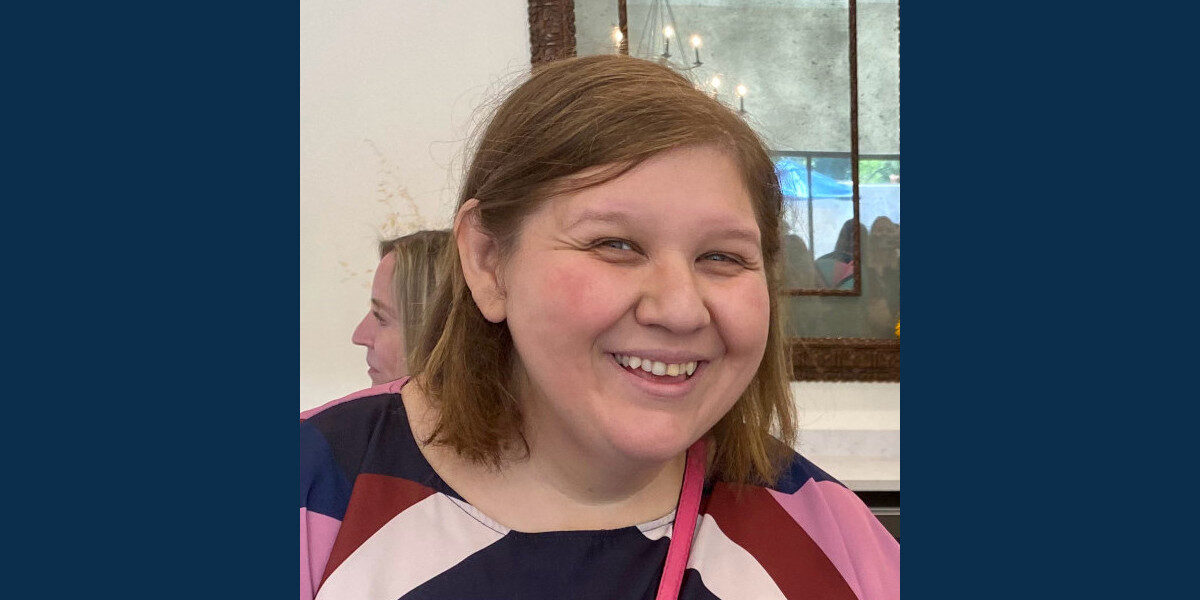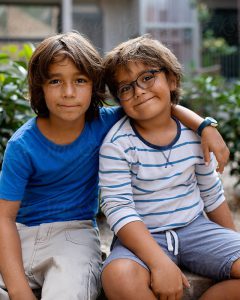

Mental Health Talent Pipeline Graduate Eloísa Masror
Mental Health Talent Pipeline alum Eloísa Masror received her master's degree last year. In this interview, she describes her work with YWCA Sonoma County.
The Healthcare Foundation launched the Mental Health Talent Pipeline (MHTP) in 2018 to address the dire shortage of Spanish-speaking and bicultural therapists in northern Sonoma County. Today, in partnership with University of San Francisco, Santa Rosa campus, and with the support of our generous donors, MHTP is expanding equitable access to mental healthcare by providing full-tuition scholarships—and supporting paid traineeships—to aspiring bilingual, bicultural mental health professionals with a commitment to serving north county’s Latinx and Spanish-speaking residents.
Recently, we caught up with Eloísa Masror, an MHTP alum who received her master’s degree from USF Santa Rosa in May 2022. Eloísa is now working full-time as a bilingual, bicultural therapist at YWCA Sonoma County, where she spent her traineeship during her third year of graduate school. Eloísa serves a diverse set of clients including survivors of domestic and intimate partner violence, a population that the YWCA Sonoma County has long specialized in supporting. Before pursuing her career as a mental health professional, Eloísa was deeply engaged with local communities as a journalist at Santa Rosa’s Press Democrat, where she covered education, government, and the Latinx and immigrant communities and later served as a local news editor.
We began our conversation by asking Eloísa about the nature of her work at the YWCA.
I’m working with everyone from young children to adults and have trained in trauma treatment. I’ve been using trauma-focused cognitive behavioral therapy, an evidence-based treatment approach, to work with children who have been sexually abused. I’m also working with people who are survivors of domestic violence. Right now, I’m co-leading a Spanish-language support group for survivors of domestic violence. I’m also co-leading a social-emotional learning group at the preschool. The YWCA has a trauma-informed preschool, and I engage with three- to five-year-olds there. I also previously co-led a group called “A Healing Journey,” which is a 12-week trauma-focused support group for adults offered by the YWCA. We dive deep into the impacts of trauma on our lives, and give the participants some tools to help manage triggers and identify when their bodies are in a fight or flight response mode. It adds up to quite the gamut. It keeps me busy.
Your work, then, entails in part educating people about the physical nature of the trauma they are experiencing?
Exactly, about the autonomic nervous system, and specifically when it’s the sympathetic nervous system that’s responding [to a perceived threat], discussing what that feels like and helping them identify the signs that they’re in that flight response mode. We teach clients ways to intervene and cope with it. We also help them normalize it—people often think that there’s something wrong with them, so we explain and remind them that, no, their brain is functioning just as it’s supposed to. It’s responding in a normal way to an abnormal situation.
How important is it for someone living with trauma to understand this?
The normalization is huge, because oftentimes people have been isolated. For example, if they’ve been in domestic violence situations, or if they’re living with their abuser, they’re often isolated from their support system. People can feel very alone and like they’re the only one who’s going through this. With support groups, they realize, oh, there’s a whole community of people like me that have experienced this. I’m not alone, and what I’m feeling is the body’s normal response to the situation that I’ve been in. Survival mode. Often there’s been no time to sit there and process. We’re supporting their self-care: practicing coping skills, and just taking time for processing what they’re going through.
“I was fortunate to have been taught by therapists who work here, locally, in the community [and who] understand the needs in the community. . . USF also has a very strong diversity and service focus. . . It prepared me well for doing community mental health.”
Eloisa Masror, YWCA Sonoma County therapist and Mental Health Talent Pipeline graduate
How does your bilingual and bicultural background come into the work you do?
Many of our clients are Spanish-speaking or bicultural/bilingual. I’m one of a few clinicians here who speaks Spanish. We’ve been expanding, so we’ve added more therapists who speak Spanish. But, as you’re aware, given the whole reason for the Mental Health Talent Pipeline program, there are not that many of us in Sonoma County. It allows me to be able to bring services to people in their language, and also to understand the cultural context of their situation. At the same time, I am very mindful that my experience isn’t identical to everyone else’s experience. Just because we share ethnicity doesn’t mean that we have the same life experiences. But being able to provide a culturally informed Spanish-language support group is very significant. I don’t believe there is another Spanish-language support group for domestic violence survivors in the county, at least that I’m aware of. We’re offering services that are really needed and otherwise not very available.
Is the demand for the group very high?
We constantly have a waitlist of people that want to join the group. There’s definitely an interest. We’ve found that it’s important to keep the groups to an appropriate size to allow for connection and sharing by all participants. But I know that there’s interest in adding more groups. The YWCA is very well aware of the need.
How have the training and education you received at USF prepared you for the work you’re doing now? Perhaps also your background as a reporter? Do you find yourself drawing on particular skills or insights you gained in those two realms?
In terms of the masters program, I was fortunate to have been taught by therapists who work here, locally, in the community. Some of them I’m still connected to. It’s been helpful because they’re practicing in my backyard; they understand the needs in the community and have really helped me prepare for that. The last year of my schooling was spent in what we call traineeship classes. We divided into small groups or pods, and presented cases to our professors, really diving deep into how best to provide support for clients and hone our skills as clinicians. That was helpful. USF also has a very strong diversity and service focus, and that was one thing that I gravitated towards. It prepared me well for doing community mental health.
How does your background as a local journalist inform the work you do now?
That prepared me, too, because I was out in the community, having some understanding of what the issues were. And as a journalist, I learned to sit with difficult stories, which is what I do everyday right now. I learned to listen with a very empathic ear and try to understand the person. Also important was that I learned to hold up a mirror to the person, help them find and identify their strengths. I live every day in awe of the resilience and the strength that comes into the room with my clients. These are people who have been through so much, and yet are motivated and really strong, despite the adversities that they’re facing. I am humbled by the clients we serve.

Related News + Stories
Invest in Our Community
Your support is vital to our collective vision of eliminating health inequities in northern Sonoma County.
Donate



